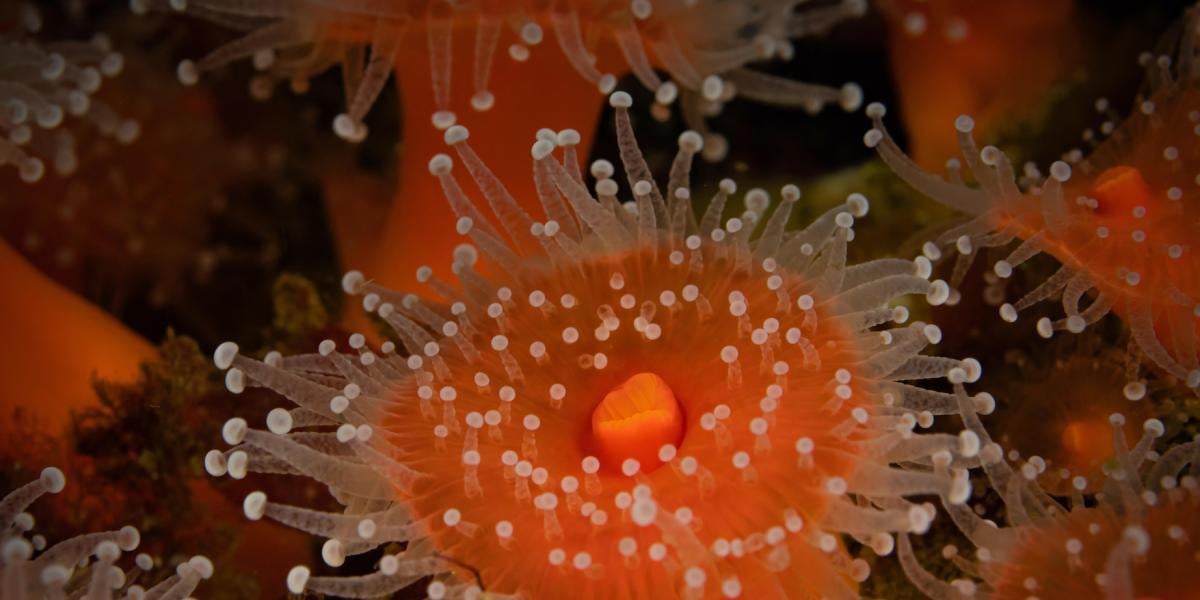Adversity led to a surprising scientific discovery for tropical coral researchers in British Columbia who were stranded on its shores during the pandemic.
Forced to explore frigid waters on their doorstep, scientists at the University of British Columbia’s Keeling Laboratory discovered that parasites thought to only infect corals in southern climates are also abundant in cold marine life along the coast. west.
“COVID-19 hit and we had a lot of planned work with coral reefs that was cancelled,” said Patrick Keeling, senior researcher at a new study about the findings.
“So I thought, ‘Well, let’s do a project and look at the local coral-related animals and see if these things are here or not.’”
The presence of the microbial parasite will have a big ripple effect on its study across the Pacific and how it could affect marine life in both warm and cold waters, Keeling said.
Since February 2023, significant coral bleaching has occurred in tropical oceans around the world, including off the coasts of Florida, the Caribbean, Latin America, the South Pacific (Australia’s Great Barrier Reef), as well as in the Indian Ocean and the Red Sea, according to the US National Oceanic and Atmospheric Administration (NOAA).
Researchers at the University of British Columbia have discovered that a parasite associated with the bleaching of tropical coral reefs is prevalent in their cold-water cousins, such as sea anemones on the West Coast. #ClimateCrisis #CoralBleaching
Whitening occurs when the coral is stressed They expel the symbiotic algae that give them color and provide them with food, leaving the reefs with a white skeleton and vulnerable to extinction.
If corals in tropical waters are more vulnerable to bleaching and warming waters due to the parasite, this may also raise concerns for marine life infected with corallicolids in cold water ecosystems as ocean warming occurs.
The parasites appear to be widespread in British Columbia’s marine ecosystems after more than 300 samples were collected at five locations from nine different types of coral-related marine animals, including sea anemones and sea feathers, said researcher Morelia Trznadel. , lead author of the study.

It appears that British Columbia marine life that hosts the parasite is largely unharmed, but corallicolids would likely also be harmful to these animals if they were stressed, Keeling said.
Cold water anemones host and depend on the same algae for their health as tropical corals. This may mean that cold-water cousins of corals are also potentially vulnerable if they also expel algae more easily in stressful ocean conditions.
“They make bleach. It’s a little hard to imagine, but we might see the same thing happen with [tropical] one day coral will happen to our anemones,” Keeling said.
The parasites have likely been in British Columbia waters for some time, but simply weren’t found because people weren’t looking for them, he said, but also because of a scientific “blind spot” because typical water testing methods wouldn’t easily identify the parasites. parasite.
Interestingly, corallicolids belong to a group of intracellular parasites that also cause human diseases such as malaria, Keeling said, adding that the newly discovered microbe in British Columbia marine life is not dangerous to humans.
The next step is to test British Columbia’s cold-water corals, which are difficult to sample because they are typically found in very deep water, unlike tropical reefs that tend to be in shallower water, Keeling said.
The discovery suggests that the parasites are moving easily throughout the Pacific, but many questions remain about the conditions driving their distribution and where they might originate, Keeling added.
Finding corallicolids in British Columbia waters means more research is needed to learn more about how and which cold-water animals the parasites may affect the most, Trznadel said.
“We want to better understand how to preserve these ecosystems and keep oceans healthy, so it’s important to understand more about these parasites,” he said.
“That way, we can get a clearer idea of the bigger picture.”
Rochelle Baker / Local Journalism Initiative / Canada’s National Observer
